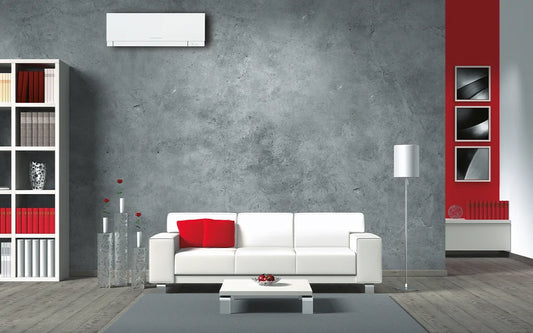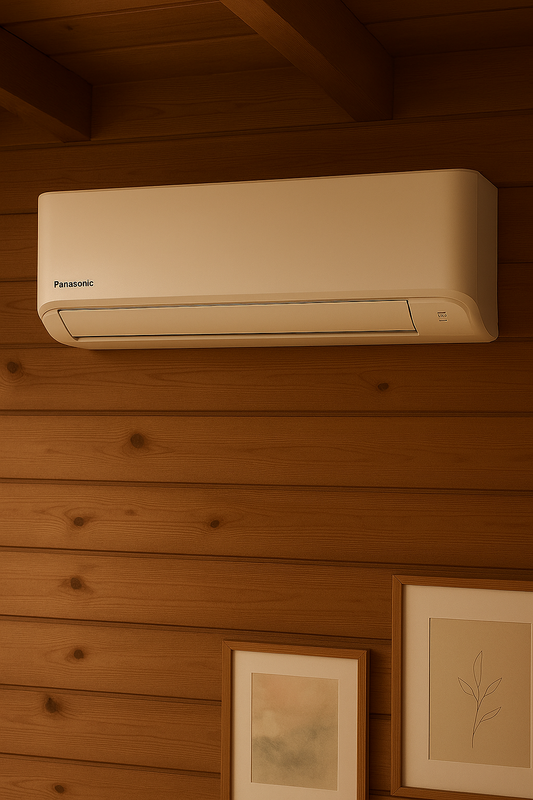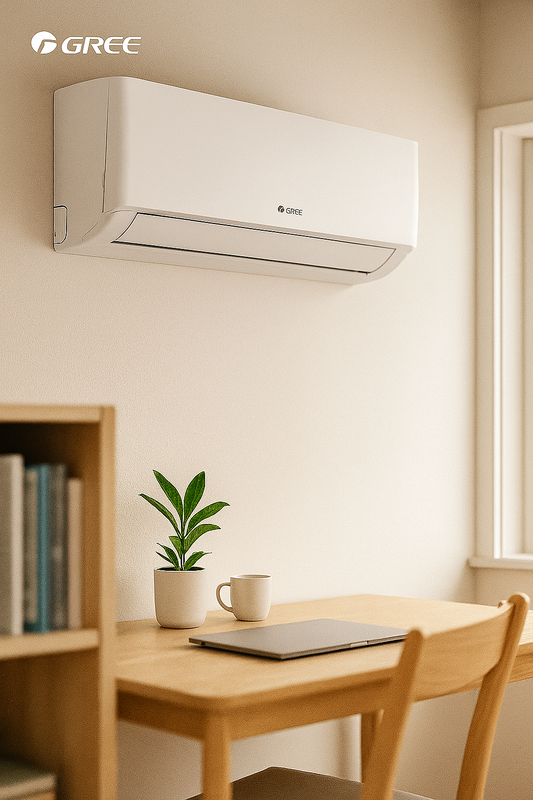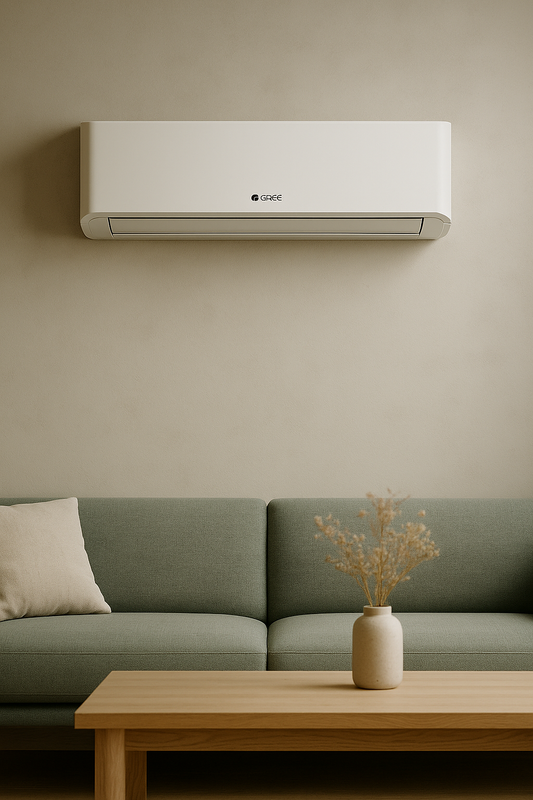Installation av luft-vatten värmepump: Pris och Information
Att installera en luft-vatten värmepump är ett effektivt sätt att minska energikostnaderna och samtidigt minska miljöpåverkan. I denna artikel kommer vi att undersöka kostnaden för installation av en luft-vatten värmepump och ge en övergripande förståelse för dess funktioner och fördelar.
Definition och Bakgrund
En luft-vatten värmepump är en uppvärmningsenhet som använder omgivande luft för att producera värme till ett vattenburet värmesystem. Genom att utnyttja energin i luften utanför huset kan denna typ av värmepump effektivt värma upp bostäder och minska energiförbrukningen. Installation av en luft-vatten värmepump kräver vanligtvis en utomhusenhet som kan placeras på taket eller på marken, samt en inomhusenhet som är ansluten till det befintliga värmesystemet. Det är viktigt att anlita professionell hjälp för att säkerställa korrekt installation och funktion.
Fördelar och Användningsområden
En av de främsta fördelarna med luft-vatten värmepumpar är deras höga energieffektivitet. Genom att utnyttja den omgivande luften som energikälla kan de minska energiförbrukningen och därmed sänka värmekostnaderna. Dessutom kan de också användas för att kyla huset under sommarmånaderna, vilket ger en mångsidig lösning för året runt. Dessa värmepumpar är också miljövänliga eftersom de inte genererar några växthusgaser under drift. Detta gör dem till ett attraktivt val för miljömedvetna hushåll.
Relaterade Tekniker, Begrepp eller Variationer
Det finns flera olika typer av värmepumpar, inklusive luft-luft värmepumpar och bergvärmepumpar. Luft-luft värmepumpar fungerar genom att överföra värme från luften utanför till luften inuti huset, medan bergvärmepumpar använder jordens naturliga värme som energikälla. Det är viktigt att jämföra dessa olika alternativ för att hitta den mest lämpliga lösningen för varje specifik fastighet.
Vanliga Frågor (FAQ)
-
Vad är den genomsnittliga kostnaden för att installera en luft-vatten värmepump?
Den genomsnittliga kostnaden för installation av en luft-vatten värmepump kan variera beroende på storleken på fastigheten, befintligt värmesystem och installationskrav. Det är rekommenderat att kontakta flera certifierade installatörer för att få noggranna kostnadsuppskattningar. -
Vilka underhållskrav har en luft-vatten värmepump?
Luft-vatten värmepumpar kräver regelbunden rengöring och underhåll för att säkerställa optimal prestanda. Detta inkluderar rengöring av filter, kontroll av köldmedie och regelbunden service av utomhus- och inomhusenheterna. -
Kan en luft-vatten värmepump användas för att kyla huset?
Ja, luft-vatten värmepumpar kan användas för att kyla huset under sommarmånaderna genom att omvända processen och avlägsna värme från inomhusluften och avleda den utomhus.
Sammanfattning
Installation av en luft-vatten värmepump kan vara en kostnadseffektiv och miljövänlig lösning för att värma och kyla bostäder. Genom att utnyttja energin i omgivande luft kan dessa värmepumpar minska energikostnaderna och minska miljöpåverkan. Det är viktigt att noggrant överväga kostnader och installationskrav samt anlita professionell hjälp för att säkerställa korrekt funktion.
Installation Process
The installation process for a air to water heat pump involves several key steps. Firstly, the outdoor unit needs to be positioned in a location that allows for efficient airflow and minimal noise disruption. This may involve the use of a concrete pad or wall brackets for mounting. Secondly, the indoor unit must be connected to the existing heating system, and the necessary electrical and plumbing connections need to be established. Professional installers will ensure that the system is properly integrated with the property's infrastructure.
Efficiency and Performance
One of the key factors to consider when installing an air to water heat pump is its efficiency and performance. These systems are designed to provide consistent heating and hot water, even in colder climates. By utilizing ambient air as a heat source, they can deliver reliable performance while minimizing energy consumption. Additionally, some models are equipped with advanced features such as inverter technology, which further enhances their efficiency and reduces operating costs.
Financial Incentives
Many regions offer financial incentives or rebates for the installation of energy-efficient heating systems, including air to water heat pumps. These incentives can help offset the initial investment and make the transition to a sustainable heating solution more affordable. It's advisable to research available incentives and consult with local authorities to take full advantage of potential savings.
Case Study: Residential Installation
Consider a case study of a residential property that underwent the installation of an air to water heat pump. The property, located in a moderate climate, experienced a significant reduction in heating costs following the installation. The heat pump's ability to extract heat from the outdoor air, even in colder temperatures, contributed to substantial energy savings for the homeowner. This real-world example highlights the practical benefits of choosing an air to water heat pump for residential heating needs.
Maintenance Best Practices
To ensure optimal performance and longevity, regular maintenance of an air to water heat pump is essential. This includes tasks such as inspecting and cleaning the outdoor unit, checking refrigerant levels, and inspecting the indoor components for any signs of wear or malfunction. Establishing a maintenance schedule and engaging qualified technicians for periodic service can help prevent potential issues and maximize the system's lifespan.
Conclusion
Installing an air to water heat pump offers a sustainable and cost-effective solution for residential heating and hot water needs. By harnessing the energy from the surrounding air, these systems provide efficient performance and environmental benefits. With proper installation, maintenance, and consideration of available incentives, homeowners can embrace this eco-friendly heating technology and enjoy long-term energy savings.
Energy Savings and Environmental Impact
One of the significant advantages of installing a air to water heat pump is the potential for energy savings and reduced environmental impact. By utilizing ambient air as a heat source, these systems can significantly lower energy consumption compared to traditional heating methods. This not only translates into cost savings for homeowners but also contributes to a reduction in greenhouse gas emissions, making it a sustainable choice for residential heating.
Integration with Solar Power
Another aspect to consider is the potential integration of air to water heat pumps with solar power systems. By combining these technologies, homeowners can further enhance the energy efficiency of their property and reduce reliance on grid-supplied electricity. This integrated approach to renewable energy can offer greater energy independence and long-term sustainability, aligning with the growing trend towards eco-friendly home solutions.
Noise Levels and Regulatory Compliance
When planning the installation of a air to water heat pump, it's essential to consider noise levels and regulatory compliance. Depending on local regulations, there may be specific requirements regarding the permissible decibel levels for outdoor units. Professional installers can advise on the appropriate placement and sound insulation measures to ensure compliance with noise regulations and minimize any potential disturbances to neighboring properties.
Remote Monitoring and Control
Many modern air to water heat pump systems offer remote monitoring and control capabilities, allowing homeowners to manage their heating and hot water settings from a distance. This feature provides convenience and flexibility, enabling users to optimize energy usage based on their daily routines and preferences. With remote access via smartphone apps or web interfaces, homeowners can monitor system performance and make adjustments as needed, enhancing overall comfort and energy efficiency.
Industry Standards and Certification
When selecting a air to water heat pump, it's important to consider industry standards and certification. Look for products that have been tested and certified by reputable organizations, ensuring compliance with performance and safety requirements. Additionally, choosing a qualified and certified installer is crucial to ensure that the system is installed according to industry best practices, maximizing its efficiency and longevity.
Case Study: Commercial Application
Explore a case study showcasing the implementation of air to water heat pumps in a commercial setting. In this scenario, a large-scale facility utilized multiple heat pump units to meet its heating and hot water demands. The integration of these systems resulted in substantial energy savings and operational cost reductions, demonstrating the scalability and effectiveness of air to water heat pumps for commercial applications.



